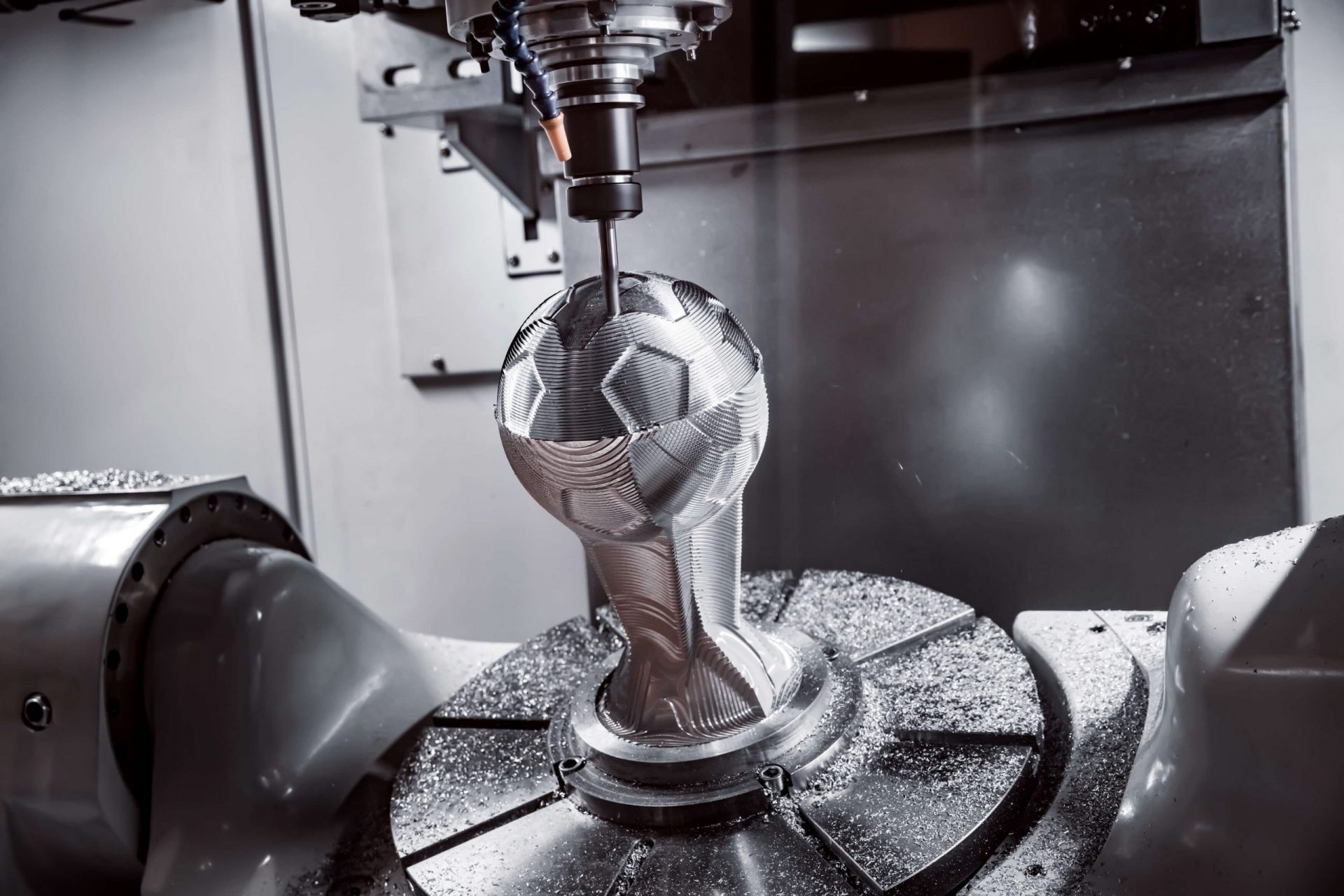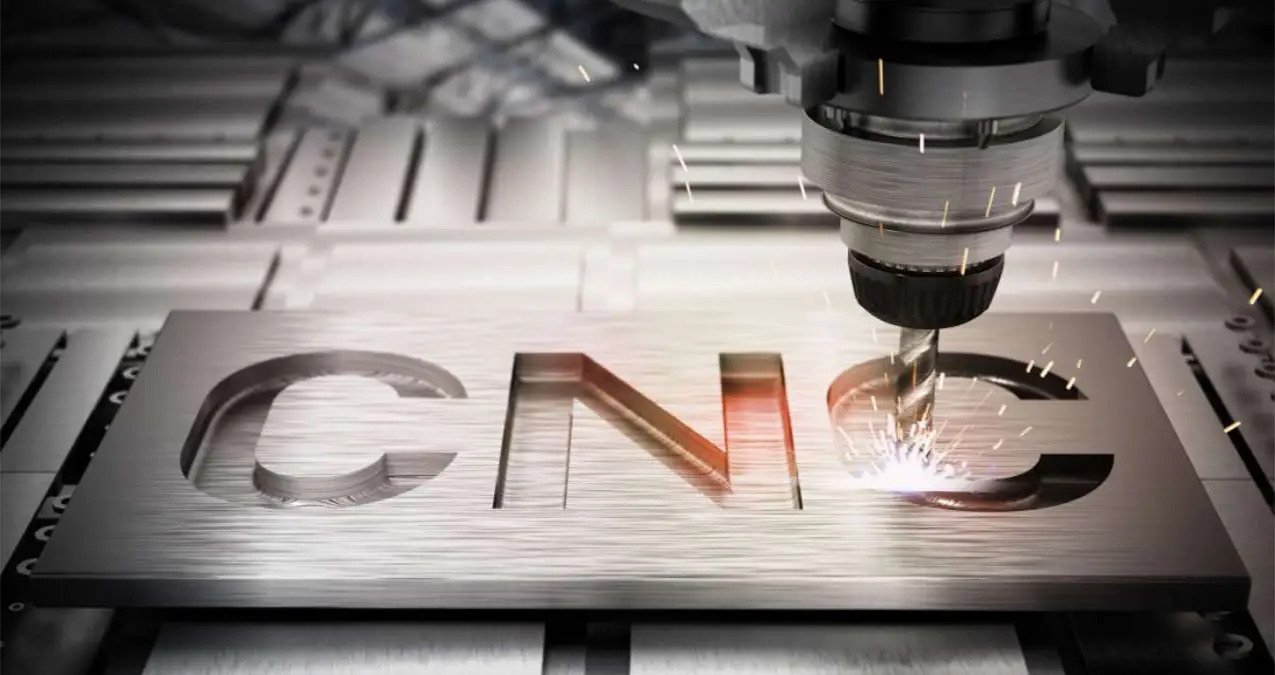How CNC Machining Solutions Improve Performance in Milling and Turning Procedures
CNC machining services play a pivotal duty in enhancing efficiency within milling and transforming processes. By using automation and accurate control, these solutions minimize human error and warranty consistent result. The capacity to manage complex geometries and maintain limited tolerances streamlines manufacturing. Nevertheless, the complete extent of CNC innovation's influence exceeds standard efficiency gains. There are much deeper ramifications and future fads that call for additional expedition.
The Fundamentals of CNC Machining
CNC machining is a precise manufacturing process that makes use of computer-controlled devices to create intricate parts and components. This modern technology utilizes computer-aided style (CAD) software to produce in-depth versions, which are after that converted into device instructions. The process typically involves various procedures such as milling, transforming, and boring, enabling manufacturers to attain high degrees of accuracy and repeatability.
CNC devices are geared up with advanced tooling that can adjust materials like plastic, timber, and metal. They operate via a collection of commands that determine movements, rates, and tool changes, minimizing human mistake and improving production performance.
The automation intrinsic in CNC machining allows for intricate geometries and tight resistances to be consistently generated, making it a favored selection in markets calling for precision, such as aerospace and auto. Comprehending the basics of CNC machining is necessary for appreciating its duty in contemporary production processes.
Benefits of CNC Machining in Milling
CNC machining offers substantial advantages in milling procedures, especially concerning accuracy and accuracy. This innovation not just enhances manufacturing rate yet also permits the creation of complicated layouts that would be challenging to accomplish by hand. As a result, services can improve effectiveness and increase their capabilities in manufacturing.
Precision and Accuracy
Accomplishing unrivaled precision and precision in milling procedures is a hallmark of sophisticated machining methods. CNC machining solutions make use of computer-controlled systems that carefully perform layouts with marginal human treatment. This automation guarantees that each cut and contour is performed to precise specs, substantially reducing the risk of errors usually connected with hand-operated milling. The capacity to generate detailed geometries with limited resistances is a key advantage, allowing producers to meet strict high quality demands. Furthermore, CNC machines can maintain consistent performance throughout numerous runs, assuring harmony in manufacturing. This degree of accuracy not just boosts item high quality however likewise decreases material waste, leading to extra efficient use sources. On the whole, CNC machining solutions reinvent milling processes through their commitment to precision and information.
Enhanced Production Speed
Increasing manufacturing speed is one of the standout advantages of contemporary machining services. CNC machining greatly reduces the moment required for milling procedures by automating operations and minimizing hand-operated intervention. Machines can run constantly, permitting raised outcome without sacrificing quality. The ability to program numerous tasks right into a solitary setup better enhances production, making it possible for makers to complete facility tasks in much less time. Furthermore, CNC machines keep high-speed cutting capacities, resulting in quicker product removal and faster cycle times. This boosted efficiency translates to much shorter lead times, allowing companies to react promptly to market demands. On the whole, enhanced production rate with CNC machining not just boosts efficiency but likewise boosts competitive advantage in the production industry.
Complex Design Capacities
The capacity to develop elaborate layouts is a significant benefit of modern machining solutions. CNC machining enables for the manufacturing of complex geometries that would be difficult, otherwise impossible, to achieve utilizing typical methods. This ability comes from innovative programming and automated tools that exactly adhere to electronic plans, making sure precision and repeatability. Consequently, manufacturers can produce elaborate get rid of limited resistances, maximizing efficiency in numerous applications. Additionally, the flexibility of CNC devices allows fast modifications to create requirements without considerable retooling, streamlining the production procedure. This adaptability not just boosts creativity in design but also enables efficient experimentation and innovation, offering businesses an one-upmanship in the ever-evolving market.

Advantages of CNC Turning Processes
CNC transforming procedures offer considerable benefits in manufacturing, specifically concerning precision and accuracy. These procedures permit the creation of very detailed elements with minimal resistances, ensuring high quality in production. Furthermore, the efficiency of CNC turning adds to decreased preparations, enabling faster distribution of completed items.
Precision and Accuracy
Precision and accuracy are trademark characteristics of CNC turning procedures, setting them apart in the manufacturing landscape. These procedures make use of computer system numerical control to lead cutting tools with unparalleled exactness. This results in elements that fulfill stringent specs and resistances, reducing the probability of mistakes. CNC turning permits regular and repeatable production, making sure that each component is virtually identical, which is crucial in markets calling for high criteria, such as aerospace and medical devices - tool and die maker. On top of that, progressed software program and technology enable real-time adjustments throughout machining, enhancing overall high quality. By lessening human mistake and making the most of control over the manufacturing process, CNC turning services provide premium accuracy and precision, making them an important choice for modern manufacturing check this needs
Reduced Lead Times
Decreased lead times are a significant benefit of CNC transforming processes, coming from their ability to optimize and automate production. CNC transforming equipments run with high performance, permitting fast configuration and execution of multiple jobs without the demand for considerable hands-on intervention. This automation minimizes downtime and accelerates the production procedure, making it possible for quicker turn-around for orders. In addition, CNC modern technology boosts consistency and reduces mistakes, which additionally adds to faster manufacturing cycles. Because of this, businesses can fulfill limited deadlines and react without delay to market demands. By leveraging CNC turning procedures, business can simplify workflows, boost resource appropriation, and ultimately enhance their one-upmanship through lowered lead times.
Precision and Accuracy in Manufacturing
While manufacturing procedures have actually evolved substantially throughout the years, the significance of accuracy and accuracy stays paramount. In CNC machining, these 2 elements are essential to creating high-quality elements that meet precise specifications. The combination of advanced computer system modern technology enables careful control over machining criteria, making sure that components are crafted with minimal variance from intended styles.
Accuracy in manufacturing refers to the repeatability of procedures, while accuracy represents how carefully a completed component aligns with its designated measurements. CNC machines utilize advanced software program and devices that enable producers to attain both, visibly reducing the margin for error - cnc turning service. This capability is particularly vital in sectors such as aerospace, auto, and medical, where also small errors can lead to devastating failures

Minimizing Lead Times With CNC Technology
CNC technology speeds up production timelines by streamlining the machining procedure. By automating tasks, CNC machines decrease hands-on treatment, considerably lowering the moment required for configuration and operation. This performance enables manufacturers to react swiftly to market needs, fulfilling orders much faster than conventional machining techniques allow.
Furthermore, CNC innovation uses quick prototyping capacities, enabling quick models and modifications based upon client feedback. The precision of CNC machining makes sure that components are generated properly the initial time, decreasing the chance of costly errors and revamp.
Furthermore, advanced scheduling and programs abilities find here maximize operations, permitting numerous procedures to run simultaneously. This assimilation of modern technology not just reduces preparations yet additionally improves overall productivity. Ultimately, the adoption of CNC machining solutions outfits suppliers with the devices essential to fulfill limited due dates while preserving premium requirements in production.
The Future of CNC Machining in Industry
As manufacturers increasingly take on CNC modern technology to enhance processes and decrease lead times, the future of CNC machining in sector shows up appealing. Developments such as expert system and artificial intelligence are set to change the capacities of CNC makers, enhancing their accuracy and versatility. These developments will facilitate real-time surveillance and predictive upkeep, lessening downtime and enhancing manufacturing effectiveness.
Furthermore, the assimilation of Web of Things (IoT) modern technologies will make it possible for much better information collection and analysis, allowing makers to make informed choices that even more boost operational performance. The surge of additive manufacturing together with CNC machining is anticipated to match typical methods, supplying better design versatility and product efficiency.
Furthermore, as sustainability comes to be a priority, CNC machining is progressing to integrate green techniques, which will certainly draw in eco mindful customers. Overall, the future of CNC machining is characterized by constant innovation and adjustment, positioning it as a cornerstone of contemporary production.
Regularly Asked Questions
What Materials Work With CNC Machining Solutions?
CNC machining solutions are suitable with numerous products, consisting of Recommended Reading steels like aluminum, titanium, and steel, as well as plastics such as acrylic and polycarbonate. Wood and composites also suit CNC processes for diverse applications.
How Does CNC Machining Compare to Typical Machining Approaches?
CNC machining offers higher precision, automation, and uniformity contrasted to typical approaches. It lowers human error, boosts production speed, and permits complex layouts, making it a premium selection in modern-day manufacturing atmospheres.
What Industries Benefit the Most From CNC Machining Providers?
The aerospace, auto, clinical, and electronic devices markets benefit considerably from CNC machining solutions. These fields take advantage of speed, modification, and accuracy to boost item quality while reducing manufacturing expenses and time, ultimately boosting general operational effectiveness.
Can CNC Machines Deal With Facility Geometries and Styles?
CNC machines are skilled at dealing with intricate geometries and styles, permitting accuracy and elaborate describing. Their sophisticated programming abilities enable makers to create elements with high precision, meeting varied industry demands and enhancing product functionality.
What Is the Regular Cost Variety for CNC Machining Services?
The common price range for CNC machining services differs extensively, typically dropping in between $50 to $150 per hour, depending on factors such as product, intricacy, volume, and the particular machining procedures used.
CNC machining is an accurate production procedure that utilizes computer-controlled devices to generate detailed parts and elements. CNC machining offers considerable advantages in milling procedures, particularly concerning accuracy and precision. CNC machining greatly minimizes the time required for grating procedures by automating procedures and minimizing hands-on intervention. CNC modern technology increases production timelines by improving the machining process. As suppliers progressively embrace CNC technology to improve processes and decrease lead times, the future of CNC machining in market appears appealing.